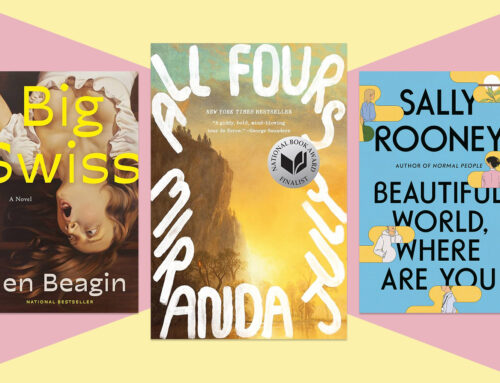Girli, the London-born singer/songwriter first arrived in music with her song “So You Think You Can Fuck With Me Do Ya”. Her pop music is known for its heavy feminist messages, it’s strong political themes, it’s relatable lyrics and queer representation within music. She just released her debut album Odd One Out featuring songs “Hot Mess”, “Stick Out” and “Friday Night Big Screen”. Her ability to use music to disrupt social order and bring about change is why I decided to speak with her during Pride Month about her own sexuality. Our interview was conducted in the true fashion of members of Generation Z as we Face-Timed while she was in the airport ready to depart for a trip to Japan.

Keke: First of all, thanks for chatting with me today and happy Pride Month!
Girli: Yeah – Happy Pride Month!
K: Can I ask your pronouns and how you identify?
G: My pronouns are she/her and I identify as pansexual but generally just queer is an easier way to say it.
K: Is this something you’ve always known or has it been a journey to get there?
G: It’s definitely been a journey! When I was younger, when I was just starting to have feelings and fancy people, it was always just boys. Then I went to secondary school and I made friends with a really opened minded group of people and my best friend was really open about how she was bisexual. That was when I was thirteen/fourteen and I started looking at people who weren’t men differently and thinking ‘Yeah, I think I fancy that girl over there’. Then I had some dates with girls when I was younger and when I was fifteen I had a girlfriend for a short while. So, that was when I was ‘Okay, I’m bisexual’. But then, when I got older to seventeen/eighteen I started going to parties and meeting more people who were genderfluid and I realised that bisexual didn’t really encompass my sexuality as well anymore as I was fancying people who existed beyond the gender binaries so I wondered what this meant. When I heard someone say ‘pansexual’, I thought about how much more that related to me.
K: For a lot of LGBTQ+ people, fashion reflects their identity and how they want the world to see them. Has your fashion sense helped you embrace your identity?
G: Yeah, hugely! I think when I left school and I was able to choose my friends more freely—not just confined to people at school—I could really dress how I wanted to. I just started making friends with really liberal, creative people who were messing around with their fashion and experimenting. Obviously, in the gay community, expression through fashion and clothes is a really big thing; same in creative communities. Fashion has always been, for me, expressing and figuring out what I’m feeling at the time.
K: Your song “Young” seems to me like you are giving advice to your fans about how to survive teen years. Do you have any advice for LGBTQ+ teens in particular?
G: I think it’s important to find your people and don’t feel put down if you’re people aren’t immediately around you. I went to quite a homophobic school and I was lucky as I found the people in my year who were open about their identities. Now with the Internet, it’s such an amazing tool as you can be living in a tiny town and be going to a school where you don’t really get along with many people, but you can find people through music and social media. So, find your people. Don’t be afraid to express yourself and experiment with things and remember if you’re in school; school doesn’t last forever.
K: I found it interesting what you said about music, as your song “Girl I Met On The Internet” was probably one of the first songs that led me to other LGBTQ+ related music. I remember listening to it, loving it and then finding so many other songs like it and now I have a whole playlist.
G: Aw, that’s so cool! That’s so awesome and really cool to hear.
K: Lastly, if you had to name an LGBTQ+ icon of yours (past or present), who would it be?
G: Definitely Tegan and Sara! They were a band that I was obsessed with when I was like fifteen and they were my big LGBT awakening and I would go to gigs and there would be loads of people my age who were in the community and they were dressing how they wanted to dress. I just thought it was so cool and they’re both openly gay and they talk about it on stage, campaign about it and talk about it in their songs. They are an inspiration and big icons for me. It was mainly due to the fact that they were the first people I encountered that were openly talking about their sexuality and embracing it.
You can listen to Girli’s debut album Odd One Out on Spotify and on all other streaming services. Also, you can follow her on social media platforms Instagram and Twitter with her handle @girlimusic.




